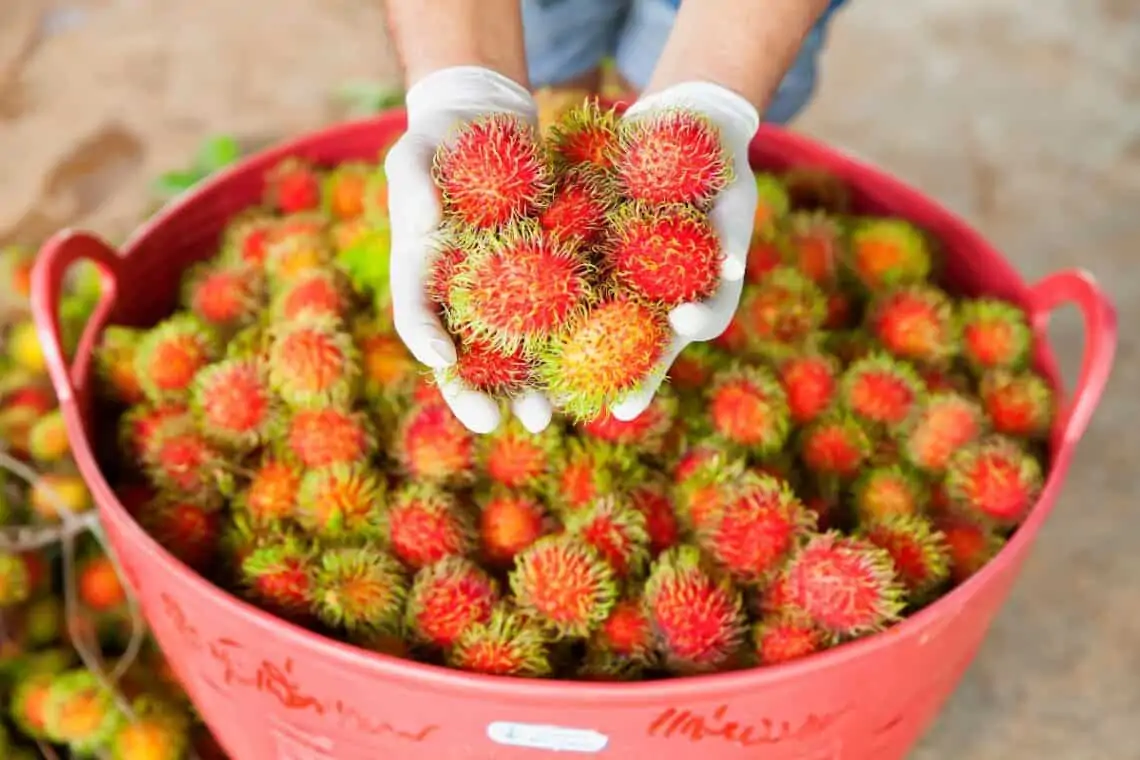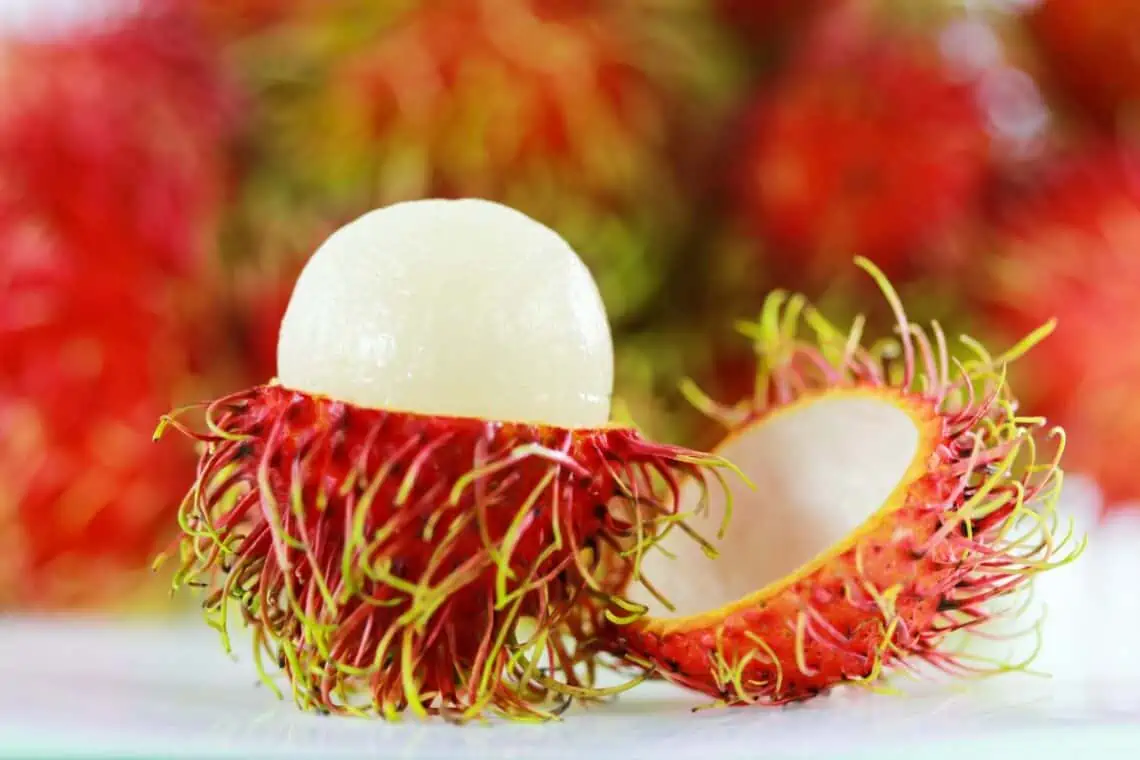If you’re like most people, you probably haven’t heard of rambutan before. That’s understandable; after all, this tropical fruit is native to Southeast Asia and isn’t commonly found in Western supermarkets.
But trust us when we say that rambutan is well worth seeking out the next time you’re looking for something new to try. Here’s what you need to know about this delicious fruit.
What is Rambutan?
Rambutan comes from the Malay word for “hairy,” and that’s exactly what this fruit looks like. It’s red or green with hairy spines sticking out all over its surface. This small, red fruit is similar in appearance to lychee and longan fruits, both of which are also native to Southeast Asia.

Rambutan is typically grown in Malaysia, Indonesia, Thailand, and Vietnam, but thanks to globalization, it’s now possible to find this fruit in other parts of the world as well. If you’re lucky enough to come across some rambutan at your local grocery store or market, be sure to snatch them up! You won’t be disappointed.
What does Rambutan taste like?
Rambutan is a trifecta of deliciousness. It’s sweet, it’s tangy, and it has a hint of lemon flavor that makes it all the more refreshing. Rambutan is often described as tasting like a cross between a grape and a lychee.
How do you eat Rambutan?
So how can you enjoy rambutan? The easiest way is simply to eat it as-is; just cut the fruit around the middle. Don’t go too deep, you want to get just through the skin. Peel off the skin and pop the tasty white flesh into your mouth.

But if you’re feeling adventurous, there are plenty of other ways to enjoy this unique fruit. For example, why not try pairing it with some cheese or using it as a garnish for a refreshing cocktail?
Rambutan is also sometimes used in Thai cuisine, so if you’re a fan of spicy food, keep an eye out for dishes that feature this ingredient the next time you order takeout.
Health Benefits of Rambutan
Rambutan is not only delicious, but it’s also packed with nutrients that can offer a host of health benefits. Here are just a few of the potential health benefits of eating rambutans:
May Boost Immunity
One of the most important health benefits of rambutan is that may help to boost immunity. This tropical fruit is packed full of antioxidants and vitamin C, both of which are essential for a strong immune system. Vitamin C helps to protect cells from damage caused by free radicals, while antioxidants help to fight infection. Eating rambutan on a regular basis can help to keep your immune system functioning properly.
May Aid in Digestion
Another one of the health benefits of rambutan is that it may aid in digestion. This fruit contains dietary fiber, which helps to promote regularity and prevent constipation. Fiber also helps to keep the intestines clean and free from toxins. Rambutan also contains proteolytic enzymes, which help to break down proteins and make them easier to digest.

May Promote Heart Health
Promoting heart health is another one of the many possible health benefits of rambutan. This tropical fruit is a good source of copper, which helps to prevent atherosclerosis—the hardening and narrowing of the arteries—by keeping cholesterol levels under control. Copper also helps to reduce inflammation throughout the body, which is beneficial for heart health.
May Improve Brain Function
Eating rambutan may also improve brain function thanks to its high copper content. Copper helps to improve cognitive function by boosting neurotransmitter activity in the brain. Copper also helps to protect the brain from damage caused by free radicals.
If you’re looking for a new fruit to try, we highly recommend giving rambutan a chance. This delicious tropical fruit is perfect for snacking on its own or adding to your favorite dishes. Trust us: once you’ve tried rambutan, you’ll be hooked!